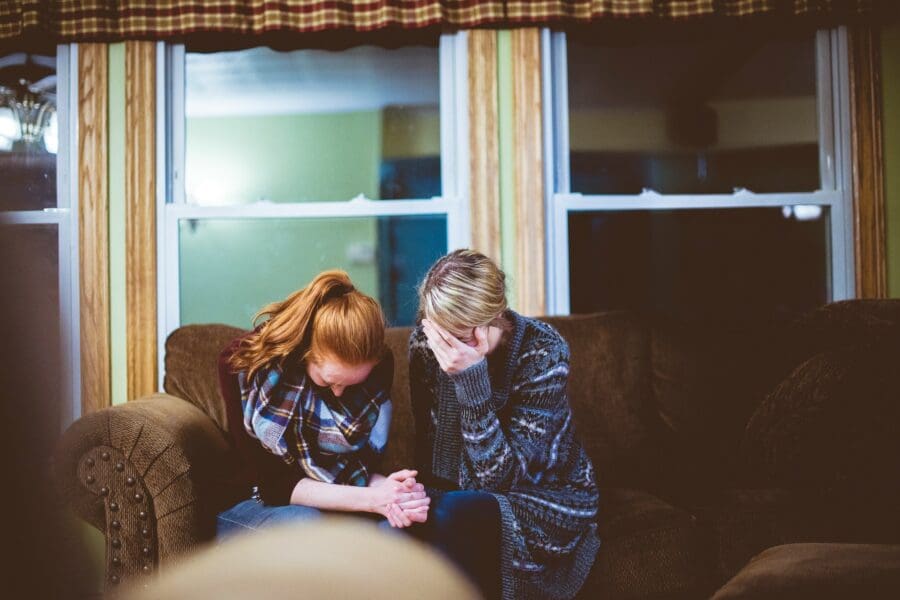Breakup Grief IS Grief—Full Stop.
If you are like me, you might question how a breakup could feel so unbelievably painful.
“Breakups happen every day. There’s simply no way this level of pain is normal.”
Our constant exposure to romantic media is a double-edged sword. On one side, it’s obvious that romantic love and heartbreak cross the boundaries of time and space. Every culture has love songs. Romeo & Juliet was far from the first love story. But because of this inescapable exposure to love and its consequences, we’ve become desensitized to just how difficult breakups are.
Breakup grief, when compared to grief where actual death has occurred, can be dismissed and invalidated. But the reality is, you are grieving a person who is still alive. You are grieving your past and future. You miss what was, and you yearn for what could have been.
Unfortunately, there aren’t many healthy ways of avoiding breakup grief. Instead, the best thing you can do is give yourself the time and space to mourn.
You’ve likely heard of the five stages of loss model from Elisabeth Kübler-Ross and David Kessler’s 2005 book On Grief & Grieving. Let’s take a look at how these five stages unfold during breakup grief.
The 5 Stages of Grief After a Breakup
Some experts argue that we should take these stages of loss and their order with a grain of salt. In other words, the stages of breakup grief may not come in order or some may not occur at all. Every situation is unique, and this is especially true when complicating factors like personality disorders are in the mix.
Denial: “It’s not actually over.”
No matter how long you were with your partner, this new phase of your life is going to feel like a big adjustment. Routines have changed and those familiar comforts are absent. For me, mornings were the worst. I remember devising plans for getting back together with my partner and convincing myself that the situation was fixable just to lull myself to sleep. But daylight revealed painful realities. I would wake up hoping that it was all a dream but quickly realized that I’d have to get through the day without them.
Anger: “How could they do this to me? How could I have done this to them?”
Anger is natural, even if your breakup was not due to painful circumstances like cheating. Even if the decision was mutual or inevitable, it’s normal to feel angry at your partner, or just at the situation, for causing you pain.
Anger is natural, even if your breakup was not due to painful circumstances like cheating. Even if the decision was mutual or inevitable, it’s normal to feel angry at your partner, or just at the situation, for causing you pain.
How to get over a breakup when it’s my fault
First of all, give yourself grace. Even the most compassionate and genuine people in the world make mistakes. You are not defined by your mistakes. You deserve to forgive yourself.
The unfortunate reality is that breakups can offer extremely painful life lessons.
If self-forgiveness seems like an impossible feat during breakup grief, consider working with a therapist to help you navigate this process.
Bargaining: “We can still be friends”.
The bargaining stage of breakup grief may be initiated by you or your former partner.
During this stage, you might be inclined to (or might actually) reach out to your former partner to offer reconciliation, or at least friendship.
I get it. Your partner wasn’t just your lover; they were your best friend, too. They know everything about your life, and you know everything about theirs. They are your emotional comfort during hardships, and they are the first person you want to share good news with.
However, experts suggest you need a “no contact” period, no matter the circumstances of your breakup. Though the thought of not speaking to your former person may sicken you, it gives you time to truly reflect on how and why the breakup happened.
This doesn’t mean you can never be friends again. But think about it: can you genuinely be friends with someone if the thought of them moving on makes you feel ill or enraged? If this is the case, friendship may not be an option right now. But true connections never die.
Right now, it’s time to focus on yourself and your healing to prepare for the future, which may indeed include friendship.
Depression: “I’ll never be as happy as I was with them.”
Research shows that breakups alter brain function, including areas of the brain associated with motivation and productivity. For some of us, it might feel impossible to get out of bed in the morning. Or like no amount of sleep is enough. Or like the moment you zone out, a wave of intrusive thoughts flood your conscience.
IMHO, this stage is the most debilitating of the five. Days feel extra long, so you feel inclined to sleep the sadness and anxiety away.
At this stage, try not to punish yourself for your lack of motivation.
The most important thing to understand is though the sadness and exhaustion feel intense and endless, they do go away; this is not your new normal.
Getting exercise might be the last thing you want to do, but exercise is recommended during these depressive episodes. If exercise seems like too much to bear, try setting small goals throughout your day, like cleaning one room or making yourself a comforting meal.
Acceptance: “This really happened. What now?”
Acceptance doesn’t mean that you no longer love your ex-partner. Acceptance also doesn’t mean that the life you shared with them matters less.
True acceptance means understanding that even though you may not agree with the circumstances of your breakup, or even if you feel as though you didn’t get the closure you wanted: you accept that what happened, happened. How do we move forward?
Dealing with the logistics of a breakup
If you were living with your partner, you might have to deal with the painful process of relocating, which includes mourning the space you shared. You may not have the privilege of dealing with logistics when you’re ready to. You may have to push through during some of your lowest emotional points. Try leaning on friends and/or family for help with logistics.
Embracing the unknown
The only predictable thing in life is that life is unpredictable. The truth is that you don’t know what will happen, and the unknown can be terrifying. But it can also be enlivening. Instead of dwelling on the happiness you once felt, embrace the notion that future opportunities, places, and people may bring you even more happiness.
4 Tips for Coping with a Breakup
Avoid triggers
There is truth to “out of sight, out of mind”. If there are objects in your immediate vicinity that are constant reminders, best to tuck them away. There’s no need for a dramatic burning ritual or paper-shredder rampage. Just be kind to yourself by avoiding objects that could trigger upsetting feelings.
Don’t doom-scroll
You might be tempted to scroll through old photos and videos and reminisce on the good times. Ultimately, this is a form of self-torture. Like with material reminders, there is no need to delete everything (unless you feel like you need to, for your healing). But try to avoid the trap of doom-scrolling.
We also live in a time where your Instagram Reels and TikTok algorithm knows you’re going through a breakup. Thankfully, the “not interested” button exists.
Spend time with loved ones
Love isn’t exclusive to romantic relationships. When we’ve made our partners our whole world, it’s easy to unintentionally neglect other loved ones in our lives. This is the time to spend time with the people you love and care about.
Accept their support, but try to be patient with the advice you receive. There’s no doubt that most of it comes from a place of love, but some of it may not feel as helpful as intended. Patience and compassion, for yourself and the ones you love, are key.
Seek professional help when grieving a breakup
We’ll say it again: breakup grief IS grief, plain and simple. Many licensed therapists work with grieving folks every day and they can help you cope with this difficult transition. And yes, it is extremely common. There is no shame in receiving help to navigate grief of any kind.
You’re not the first or only person grieving a relationship.
This isn’t just a platitude; you’re really not alone.
Relationship grief may alter your sense of identity. For many of us, our partners quite literally felt like our other halves, and without them, you feel like you’re not whole anymore. But with time and the right support, you’ll soon be whole again. You got this.






Leave a Comment